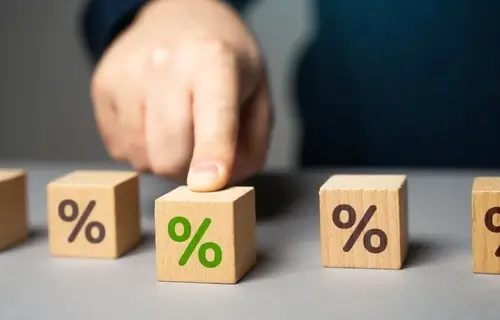
In the intricate dance of acquiring a mortgage, your credit score takes center stage, dictating the interest rate that can either make your dreams of homeownership a reality or a financial challenge. Understanding the dynamics between your credit score and mortgage interest rates is crucial as you embark on this journey toward owning a home.
The Credit Score Symphony
Your credit score is not just a random number but rather a symphony of your financial history. Composed of your credit payment history, outstanding debts, credit account types, and the length of your credit history, this score plays a pivotal role in determining your creditworthiness.
When it comes to securing a mortgage, lenders scrutinize this score with an eagle eye. The reason? Your credit score is a reliable indicator of how likely you are to repay your debts. The higher your score, the less risky you appear to lenders, and this perceived reliability translates into lower interest rates.
The Interest Rate Ballet
Mortgage interest rates are like choreographed dancers, gracefully swaying between different tiers based on the perceived risk of the borrower. Your credit score essentially dictates the choreography – the higher your score, the more gracefully you move through the tiers, enjoying lower interest rates.
For those with excellent credit scores (usually 800 and above), the interest rates can be as enticing as a beautifully executed pirouette. These borrowers often qualify for the lowest rates available, saving them thousands of dollars over the life of their mortgage.
On the other hand, you may find yourself dancing with higher interest rates if your credit score isn't the best. Lower scores are interpreted by lenders as an indication of possible risk, and as a result, they might give you a mortgage with a higher interest rate in order to offset this perceived risk.
Dollars and Sense: The Financial Impact
Let’s put it in dollars and cents. Consider two hypothetical homebuyers, Alex with an excellent credit score of 780 and Taylor with a fair score of 650. Both are looking to secure a $250,000 30-year fixed-rate mortgage.
Alex, with the stellar credit score, might lock in an interest rate of 6.5%. Over the life of the loan, they would pay approximately $255,000 in interest. In contrast, Taylor, with the fair credit score, might be offered an interest rate of 7%. This seemingly modest .5% difference results in Taylor paying around $279,000 in interest over the same period.
That's a substantial $24,000 difference, emphasizing the tangible impact your credit score can have on your financial journey through homeownership.
Taking the Lead in Your Credit Score Tango
If your credit score is looking more like a stumbling dance partner than a graceful performer, fear not. There are steps you can take to improve it before making the leap into homeownership. Paying bills on time, reducing outstanding debts, and avoiding opening new credit accounts can all contribute to a better score.
Remember, your credit score is not fixed but rather a dynamic reflection of your financial habits. By being proactive and responsible, you can lead the dance, ensuring that when it comes time to secure a mortgage, you do so with confidence and at the most favorable interest rate.
In the intricate world of mortgages, your credit score is the rhythm that sets the pace. Understanding its significance empowers you to make informed decisions, turning your journey to homeownership into a beautifully choreographed performance where every step leads you closer to the home of your dreams.
